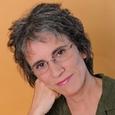The short answer to this question is a resounding “Yes!”
Dr. John Gottman spent forty years researching how couples create close, lasting relationships and what it takes to turn a distressed marriage around. Using his approach, Gottman Method Couples Therapy, 85% of couples were able to turn their relationships around.
More recently, Johnson et al followed couples who sought the help of Emotionally Focused Therapy. Ninety percent of couples using this approach felt their relationships had improved, and 70-73% felt that their marriage difficulties were solved after after 10-30 counseling sessions. Even better, for both these approaches, couples continue to improve after marriage counseling is over. The level of distress and severity of the problem did not matter much – it explained only 4% of these couples’ counseling success.
How Counseling Can Help
Communication: Gottman found that most conflict (69%) are about ongoing differences in beliefs and values. Couples need a way of talking over issues about which they will probably never agree. A good counselor can help couples listen to feelings beneath the words, which increases respect and closeness.
Emotional Connection: Conflict may upsetting, but emotional distance can spell the end of a relationship. The California Divorce Mediation Project found that 80% of the time, the reason given for divorce was that there was no longer affection, humor, or passion – the couple was growing apart. But if there is still a spark of warmth and passion in the relationship, however buried, a counselor can help couples reclaim it.
Everyday Conversation: A counselor can help couples create everyday rituals and take small steps to increase affection, appreciation, and enjoyment. This helps build what Gottman calls a “positive perspective” in the relation that can help couples appreciate and respect each other during times of conflict.
Closeness and independence: A counselor can help couples build honest communication and feel more connected. The security of a stronger bond with each other can help each person feel more comfortable stepping out into the world and being more independent, because they know there is a “secure base” to return to each night.
“Counseling gave me a much better understanding of my partner and myself. It made me more compassionate and helped me to find words to express previously amorphous emotions. Wherever your path takes you, it can help to have another person as coach, guide, facilitator.”
-- Client
When It’s Not a Good Idea...
Sometimes marriage counseling isn’t the best next step. Couples counseling is not effective when one person has already made a decision to leave the relationship. Counseling helps support people’s goals, not change their minds. At this point, the role of a therapist or “divorce coach” would be to help partners separate gracefully. Couples counseling is also not helpful when fights have turned physical. When there is a question about safety, individual or group counseling is the place to start.
“My spouse and I have only been going [to counseling] for a few months but we immediately both felt such relief and hope for our marriage....[it] has given us a very bright light at the end of our dark tunnel.” -- Client
In the past forty years, marriage counseling has come a long way. Research shows what goes well in successful marriages, and how to turn distressed relationships around. With an effective approach and a counselor who is a good fit for you, marriage counseling definitely works.
References
Gottman, John, 2004. The Seven Principles for Making Marriage Work
Johnson & Greenberg, 1985. The differential effectiveness of experiential and problem solving interventions in resolving marital conflict. Journal of Consulting & Clinical Psychology, 53, 175-184.
Client comments are from the U.C. Berkeley Parent Network, where they are anonymously posted at
http://parents.berkeley.edu/advice/family/couples_therapy.html
Subscribe to my newsletter, "Building Great Relationships," at Berkeley Couples Counseling
Pat LaDouceur, PhD, helps people build warm, satisfying relationships. Through counseling, she helps people reduce conflict, build intimacy, and resolve problems around sexuality, affairs, parenting, money, illness, infertility, and stress.

Post new comment
Please Register or Login to post new comment.